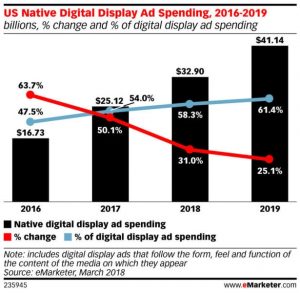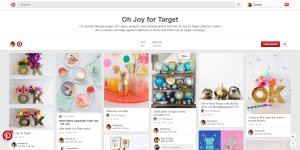
The four most common types of blogs are Personal blogs, Business blogs, Niche blogs, and Affiliate blogs. Let’s discuss them one by one.
1. Personal Blogs
Personal blogs are the pioneers of the blogging industry. When blogging emerged in the late 90s, it started with a personal blog. It paced-up as people began making their own blogs and penning down their thoughts, pieces of advice, opinions, and stories. Personal blogs are the most conventional and traditional form of blogs.
In a personal blog, a blogger puts their personality in the form of blog posts in front of their audience. There are essentially no rules or protocols for personal bloggers. They can write about anything they wish. A personal blog can be about the blogger’s hobbies, passions, political views, or a cause that they support. In the literal sense, a personal blog can be about anything. So, the first answer to ‘What are 4 common types of blogs?’ is a personal blog.
How to create a successful personal blog?
If you want to build a personal blog, sign up for a domain on websites like WordPress and Blogger. Publish the blog on the internet and start writing blog posts. The blog posts should convey your passion, hobbies, pieces of advice, opinions, or your daily life to your readers.
Find out if other blogs have the same kind of posts and messages. Comment on their blog posts and give a link to your own blog posts. This way, their readers will find out about your blog, and you’ll have an increase in web traffic.
2. Business Blogs
Blogs oriented toward businesses are called business blogs. The business bloggers tend to write on the topic related to the work they do for a living. A business blog aims to generate more leads for their businesses and make as many potential customers as possible. Unlike personal blogs, business blogs contain more professional ways of writings. They promote specific businesses and follow industry rules.
The topics of the business blog posts will strictly be around the industry they are aligned with. Take an e-commerce business blog, for example. The blog posts will be something like, ‘How to Increase E-commerce Sales,’ ‘Top 10 Christmas Gifts You Can Buy Online,’ ‘XYZ Product Review,’ and other similar posts.
How to run a successful business blog?
The main goal of a business blog is to generate and store leads from the visitors. To do so, you’ll have to write engaging blog posts about your business. After that, you’ll have to request the visitors to sign up for your mailing list. If a visitor signs up, you’ll end up getting a potential lead. That’s a successful transaction, for starters.
3. Niche Blogs
Niche blogs target specific topics instead of covering a set of different topics under its umbrella. You’ll find many niche-based blogs such as food blogs, basketball blogs, music blogs, car-racing blogs, content marketing blogs, Java blogs, movie blogs, health & fitness blogs, and many more.
A niche blog is a perfect way to start your journey as a professional blogger. Just find something that you are passionate about and build a blog around it. It will only get better with time, and you’ll be able to generate revenues as well.
How to run a successful niche blog?
First, you’ll have to define the niche you are passionate about. You can find more than 200 case studies of real-world niches from here. After this, define your target group. Target groups can be determined based on demographics, age-groups, gender, and personal likes and dislikes. Once you have defined your TG, the next step is to create content around your niche and promote your blog post to your TG. By doing so, you’ll have a far more success rate than usual business and personal blogs.
4. Affiliate Blogs
Affiliate blogs are built to generate commission through affiliate marketing. In affiliate marketing, you get paid a small percentage of the sale amount that’s been made through you. An affiliate blogger writes product reviews and asks their readers to purchase those products through their affiliate links. Once a transaction is made, the blogger gets a small kickback from it.
Affiliate blogging is a huge industry. 81% of brands improve their marketing through various affiliate programs. It also helps bloggers to increase traffic. In fact, 84% of bloggers involve affiliate marketing techniques to grow their audience.
How to run a successful affiliate blog?
A successful affiliate blog aims to promote third party products and services to its audience. To run an affiliate blog successfully, you’ll have to write convincing reviews of the products and services you are endorsing. Half-hearted reviews that aren’t convincing won’t generate any revenue. You’ll need conviction in your writing.
Above, we’ve answered the question, what are 4 common types of blogs. If you have a website and you are wanting to get more attention from google, then blogging could be the way to go.
If you are like many of our clients and know that you “should” be doing blogs, but do not know how or where to start, reach out. After all, we are the blogging experts and are here to serve.
Digital & Social Articles on Business 2 Community
(34)







